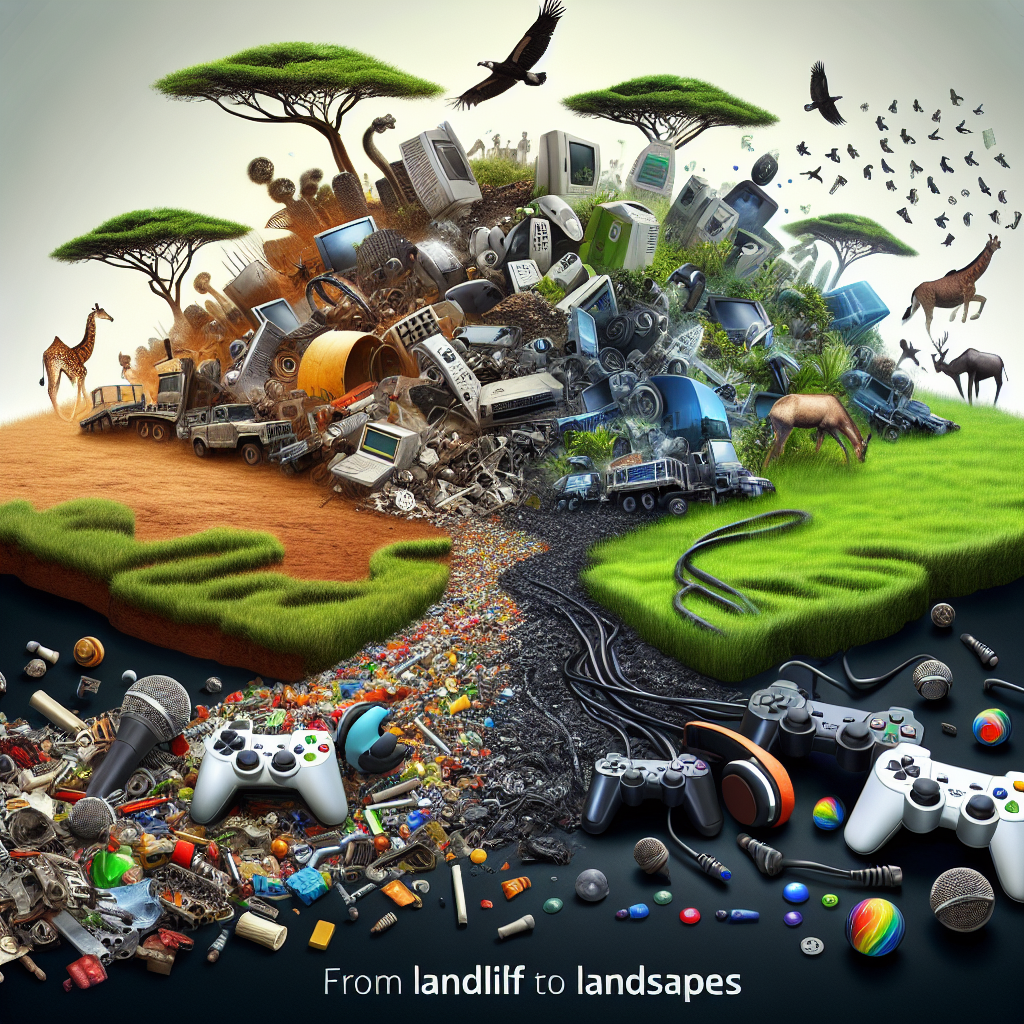From Landfill to Landscapes: Recycling Tech and Its Impact on Africa’s Gaming Scene
The emergence of the gaming industry in Africa has painted a vivid picture of creativity, innovation, and potential, showcasing the continent’s aptitude for storytelling and interactive entertainment. However, as with many industries, it faces significant challenges—in particular, access to technology. As youth in many African nations strive to create engaging gaming experiences, one remarkable solution is starting to emerge: recycling technology from e-waste.
The E-Waste Crisis
Africa is often seen as a dumping ground for electronic waste (e-waste) from wealthier nations. This leads to a significant environmental problem, as discarded electronics contain toxic materials that pose serious health risks to communities. However, within this crisis lies an unparalleled opportunity for innovators and entrepreneurs. Creative minds in Africa are beginning to utilize this e-waste, not just to mitigate the environmental impact, but also to uplift the burgeoning gaming scene across the continent.
The Role of Recycling Tech
Recycling technology is crucial to addressing the e-waste crisis, and its potential extends far beyond environmental benefits. By refurbishing discarded smartphones, computers, and gaming consoles, African technologists are breathing new life into outdated hardware. This not only recovers valuable materials such as copper and rare earth elements but also offers a low-cost solution for gamers and developers.
For instance, ancient gaming consoles can be transformed into development kits for aspiring game designers, allowing them to create games without the financial burden of expensive modern hardware. Similarly, using refurbished smartphones can be a gateway for mobile game development, tapping into the continent’s growing mobile connectivity.
Impact on Africa’s Gaming Industry
-
Accessibility and Affordability: The production of low-cost gaming devices increases access to technology for aspiring developers and players alike. By bringing down the entry barriers, more individuals can engage in game development, thus enriching the gaming landscape with diverse perspectives and voices.
-
Sustainability: As developers increasingly focus on sustainable practices, recycled devices serve as symbols of innovative solutions to traditional waste management problems. Eco-friendly gaming initiatives can attract environmentally conscious consumers and promote a culture of reusability.
-
Local Innovation: With the rise of recycled technology, local developers are sparking innovative ideas that resonate with their communities. This leads to a unique blend of local culture and gaming, resulting in storytelling that reflects the African experience, history, and folklore. Games that resonate with the target audience can stimulate cultural pride and strengthen community ties.
-
Skill Development: E-waste recycling programs can foster educational initiatives that equip young people with valuable skills. Workshops and training on electronics, coding, and game design can sieve through the formidable challenges of unemployment, allowing youths to navigate promising career paths in technology and gaming.
- Create and Collaborate: Colossal regional collaborations are beginning to take shape as developers recycle technology and share knowledge. Platforms that connect developers to resources can accelerate the group’s progress, elevating the overall quality of gaming projects across the continent.
Challenges and the Road Ahead
Despite the promise that recycling technology brings to Africa’s gaming scene, challenges remain. The recycling process itself needs to be streamlined to ensure not only efficiency but also maximum sustainability. Moreover, there is a continual need for policies and frameworks to encourage responsible e-waste management, ensuring that the benefits of recycling do not come at the cost of worker safety or environmental degradation.
Furthermore, securing funding and investment in the tech and gaming industry is critical. While some entrepreneurial ventures have attracted global attention, mainstream investment will be essential to scale these innovative initiatives.
Conclusion
The intersection of e-waste recycling and the gaming industry in Africa opens a portal of possibilities. By turning landfill into landscapes for creativity and innovation, the continent can confront its environmental challenges while providing millions with the entertainment and inspiration that gaming offers. As Africa continues to evolve in the digital realm, it is crucial for stakeholders—governments, private sector players, and civil society—to support this transition, fostering a gaming culture that not only thrives economically but also cherishes the environmental ethos of sustainability and responsible stewardship. In this way, not only will the gaming industry flourish, but it will also be a powerful force for social development and change across Africa.




